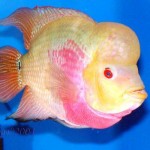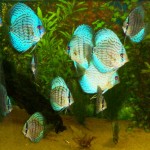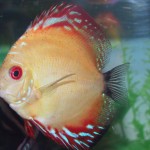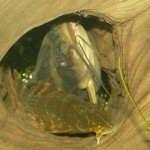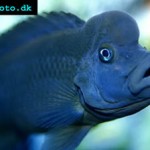discus fish are particular about their breeding partner. This can make it tough to breed the discus as compared to other freshwater fish. The discus also has high-maintenance water-quality needs, which can make them a time-consuming breed. But with hard work, it is possible to breed this fish at home.
Instructions
1
Set up a tank at least 10 gallons or larger in size. This will provide enough room for four discus fish. A highly social species, the discus will be unhappy with fewer than four. Keep two males and two females in the tank for the best chance of breeding.
2
Keep the water clean at all times. Discus fish will be much more likely to breed if the water is clean every day. Change 5 percent to 10 percent of the water each day to keep it clean. If it still isn’t clean, you are likely feeding the fish too often. Keeping the water clean will prevent stress and keep the fish happy enough to settle on a breeding partner.
3
Install a thermometer on the side of the fish tank or have one floating free to keep an eye on the temperature. It should be about 80 degrees in the tank. A fluorescent tank light is usually enough to keep the water at this temperature.
4
Watch for behavior changes in the fish. Once a breeding pair has been established, the pair will begin cleaning an area in which to lay eggs. Once this happens, remove the breeding pair from the tank and place them in a breeding tank. The set up should be much the same as the larger tank, but the tank can be smaller.
5
Wait for the pair to lay eggs and fertilize them. The pair will guard a small area of the tank. Take a look at that area to see the eggs. If the pair is healthy, the male will soon fertilize the eggs. Once this happens, allow the breeding pair to stay with the eggs. The parents will feed the babies from their own bodies in the form of a slime coat.
6
Let the babies stay with the parents until the breeding pair seems to be waiting to breed again. If you see the pair cleaning a new space for eggs, the babies are likely large enough to go back into the larger tank with the rest of the fish.












